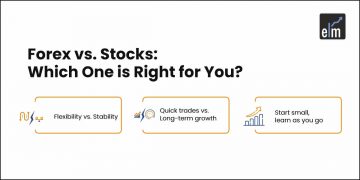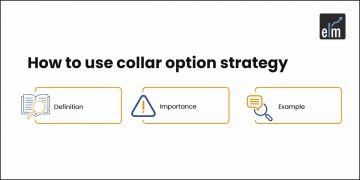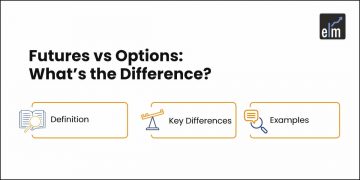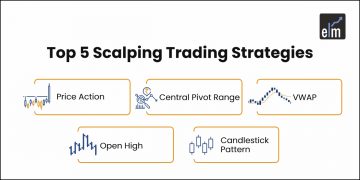Learn about Derivatives:
- When dealing in the stock market, you must have heard the term “Derivatives”
- A derivative is an agreement between two parties, which derives its value from an underlying asset, which may be stocks, currency, commodities, etc.
- It is mainly used as a tool for hedging, speculating as well as arbitraging.
- The common types of derivatives are options, futures, forwards, and swaps.
Let us understand the most common terminology which is associated with the derivatives market:

For detailed understanding of derivatives, you can also refer to the link here: Certification in Online Derivatives Demystified
You can also join our derivative analysis course to further enhance your knowledge in these topics.
- American Style Option: A type of option that can be exercised at any time unlike the European Style option which can only be exercised at expiry
- At-the-Market: A kind of financial transaction where the order to buy or sell is executed at the current market price.
- At-the-Money Spot: An option whose strike price is equal to the current market price in the cash spot market.
- At-the-Money Forward: An option whose strike price is equal to the current market price in the forward market.
- Call Option: It is a financial contract that gives the owner the right but not the obligation to buy a specific amount of the underlying financial instrument at a particular price with a specific date of maturity.
- Commodity Swap: A contract in which counterparties agree to exchange payments related to indices, at least one of is a commodity index.
- Currency Swap: A currency swap involves the exchange of an interest in one currency for the same in another currency.
- Delta: The change in the financial instrument’s price to changes in the price of the underlying cash index.
- Equity Swap: A contract in which counterparties agree to exchange payments related to indices, at least one of which is an equity index.
- European Style Option: An option that can be exercised only at expiry as opposed to an American Style option
- Forward Contracts: An over-the-counter obligation to buy or sell a financial instrument that is settled privately between the two counterparties.
- Futures Contracts: An exchange-traded obligation to buy or sell a financial instrument.
- Gamma: The degree of curvature in the financial contract’s price curve to its underlying price.
- Hedge: A transaction that offsets an exposure to fluctuations in financial prices of some other contract or business risk.
- In-The-Money Spot: An option with positive intrinsic value with respect to the current market spot rate.
- In-The-Money-Forward: An option with positive intrinsic value with respect to the current market forward rate.
- Option: The right but not the obligation to buy (sell) some underlying cash instrument at a specific rate on a particular expiration date.
- Premium: The cost associated with a derivative contract, referring to the combination of intrinsic value and time value.
- Put Option: A put option is a financial contract giving the owner the right but not the obligation to sell a particular amount of the underlying financial instrument at a pre-set price.
- Spot: The price in the cash market for delivery using the standard market convention.
- Strike Price: The price at which the holder of a derivative contract exercises his right.
- Theta: The sensitivity of a derivative product’s value to changes in the date, all other factors staying the same.
We hope now you will able to understand the derivatives terms when dealing in the same.
If you wish to understand more about such terms, checkout our course in derivatives.
Happy Learning!
BOTTOMLINE
Gather the basics of Derivatives Market from Elearnmarkets in the course Derivatives Made Easy.
Also Check Stockedge to get updated Financial Market scenarios and start investing with reduced risk.







